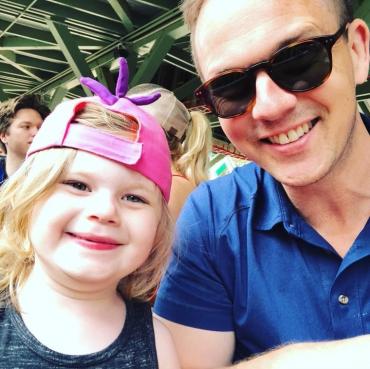A parent’s perspective on understanding challenging behaviors associated with autism
When Ella was diagnosed with autism at age three, her parents, Tanaya and Aaron, were fearful of what this meant for their daughter’s future. At the time, Ella was mostly non-verbal, far from potty trained and struggled with heightened sensitivity to loud noises, smells and clothing textures.
Today, thanks to an array of early intervention services, including applied behavior analysis (ABA), and the unwavering support of her family, Ella is 6 years old and thriving. In the three years since her diagnosis, Ella, improved upon many of the challenging behaviors that manifested early on. More importantly, her family learned that Ella’s diagnosis was not something that should have been feared, but better understood so that her unique gifts could be channeled during her journey to reaching her full potential.
Learn more about Ella’s autism journey in this Q&A with her mom and dad
Please share your initial thoughts when you first received the news about Ella’s diagnosis.
The initial thought that runs through any parent’s mind when told that their child has any diagnosis for a developmental condition is (something to the effect of) “Have I just learned the worst news of my life? What will this mean for my child’s prospects for having a fulfilling life?” In our case, having some professional knowledge regarding the autism spectrum, we were at least aware that the possible answers to these questions were diverse. But to be perfectly honest, it would be fair to characterize the initial reaction as panicked.
What are some of the challenging behaviors Ella has struggled with throughout her life?
Ella has always manifested certain behavioral tendencies. It’s not always easy to get her attention, even with multiple attempts calling her name in close proximity. Although she ate everything under the sun at age two, by age three she had a very restricted diet, mostly beige-colored foods. Perhaps the most difficult from a parent’s point of view is the fact that, despite being one of the most caring people on earth who desperately wants friends and social connection, she regularly struggles with how to successfully implement and interpret social cues. She has made strides in the social domain, but more improvement will be necessary to achieve her social-relational potential.
Please explain how you and your family worked to modify those behaviors.
From both our own experience (and research has shown), the single most effective agent of change is applied behavioral analysis (ABA) therapy. Once diagnosed, Ella began intensive ABA therapy, with the goal of achieving the compounding benefits of early intervention. What a difference it has made in our lives! Not only has Ella exhibited behavioral, emotional and cognitive improvements as a function of her therapy—but she has also done so under the direct guidance of people other than her parents. As we’ve learned, it’s incredibly important for us to still be "mom and dad” to Ella, while clinically trained professionals take the responsibility for addressing her behavior.
Since Ella began ABA soon after her diagnosis, we have had the privilege of watching her develop into an exceptionally unique, joyous, hilarious, insightful and kind person who cares deeply for all creatures and people. Ella is one of the hardest working people we know, as she balances the daily demands of behavior therapy, virtual Kindergarten and her self-imposed responsibilities as big sister and tiara-wearing princess of the house.
Thanks to the services she has received, we now have no doubt that Ella will live an extraordinary life, and we feel deeply fortunate to have a front-row seat from which to observe it. Ella is a walking testament to the crucial importance of intervening early with behavioral therapies and educational supports. We applaud Autism Speaks for their role in publicizing the importance of early intervention. It is difficult to overstate the imperative to help make resources available for autistic children, autistic adults and their families, as they navigate their paths.
Please share any advice you have for other parents in similar situations.
Our biggest piece of advice is not to view your child’s diagnosis as a tragedy, or from a place of fear. Looking back at the day we received her diagnosis, we often wish we knew then what we know now - Ella's diagnosis was nothing to be afraid of, but in fact, a gift. Individuals on the spectrum are extraordinary, and as her parents, we are the lucky ones who get to have a front row seat in facilitating her extraordinary journey.
On a more practical level, make sure you research city- county- or state-level resources that might be available, from daycare reimbursement programs to parental education seminars. You might come to realize that, in the process of dealing with your child’s ASD, you’re less alone than you might feel.









